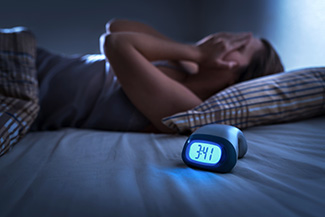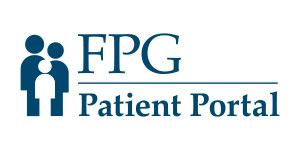with FPG Pulmonologist and Sleep Medicine Specialist, Rabih Loutfi, MD
There are few things more refreshing than an actual good night’s sleep. None of the tossing and turning, waking up and falling back to sleep, feeling too hot or too cold, but the kind of deep sleep that lets you wake up with the energy to tackle the day head-on.
If you suffer from sleep apnea, it may have been a while.
But the effects of sleep apnea actually go far beyond the typical symptoms of poor sleep, affecting heart health, mental health, vascular health, and even shortening your lifespan.
We spoke with Dr. Rabih Loutfi, a First Physicians Group pulmonologist and expert in sleep medicine, to learn more. “People don’t realize how much sleep apnea can affect their quality of life,” Dr. Loutfi says, “but the effects can be far-reaching. Anyone who thinks they may be suffering from sleep apnea should speak to a healthcare professional.”
What Is Sleep Apnea?
Sleep apnea is a serious sleep disorder that causes a person to temporarily stop breathing in their sleep. It is most often caused by throat muscles over-relaxing and allowing the throat to close altogether, blocking respiration. Some people even find themselves waking up and gasping for air, as if they were choking. Most, however, don’t even know it’s happening.
This is unfortunate, as untreated sleep apnea can have very serious side effects.
The Effects of Sleep Apnea on the Body
The early signs of sleep apnea will be largely what one would expect from lack of quality sleep: fatigue and tiredness, mood swings, irritability and depression, difficulty concentrating. And with severe sleep apnea, even these can lead to serious problems. There are even instances of people so exhausted that they fall asleep waiting at a traffic light.
But the effects of sleep apnea go much deeper and beyond simple quality of sleep. And dealing with sleep apnea requires more than simply “powering through” on those bad nights and days.
Cardiovascular Effects
Your heart is working hard while you sleep, so it needs oxygen, but a sudden drop in oxygen levels due to sleep apnea can put excess strain on the muscle. When oxygen levels drop, blood pressure increases and strains the cardiovascular system as a whole. This can lead to chronic high blood pressure and increase risk of heart disease.
In short, the more severe the sleep apnea gets, the greater the risk heart of heart attack, heart failure, and stroke.
Sleep apnea can also lead to arrhythmias, or irregular heartbeats, such as atrial fibrillation, a very serious arrhythmia that can cause blood clots to form in the heart, greatly increasing risk of stroke. While rare, some arrhythmias can even cause sudden cardiac death.
Type 2 Diabetes
Within the last 15 years, studies have increasingly shown a connection between sleep apnea and developing Type 2 diabetes. And if still left untreated, sleep apnea will even lead to further complications managing the disease.
Note: Obesity is a significant risk factor for developing sleep apnea and Type 2 diabetes. Maintaining a healthy weight can help avoid both.
Vision Problems
Several ocular diseases have been linked to sleep apnea, including floppy eyelid syndrome, nonarteritic anterior ischemic optic neuropathy (NAION), and, possibly, glaucoma.
Liver Damage
Sleep apnea, and the resulting insulin resistance and high blood pressure, has even been shown to increase risk of developing non-alcoholic fatty liver disease (NAFLD), a serious condition whereby excess fat builds up in the liver. This can lead to scarring, cirrhosis, and even liver cancer.
Treatment for Sleep Apnea
The good news is that sleep apnea is very treatable and manageable.
For some, simple lifestyle changes can greatly alleviate sleep apnea symptoms. This includes maintaining a healthy weight, getting the proper amount of daily exercise, eating healthy, and practicing good sleep hygiene. For others, using a CPAP (Continuous Positive Airway Pressure) machine during sleep is the answer.
And there are new advances being made every day, like the Inspire system, helping people with sleep apnea sleep better.
 Rabih Loutfi, MD is a board certified pulmonologist and sleep medicine specialist with First Physicians Group. For more information or to make an appointment, please click here.
Rabih Loutfi, MD is a board certified pulmonologist and sleep medicine specialist with First Physicians Group. For more information or to make an appointment, please click here.


